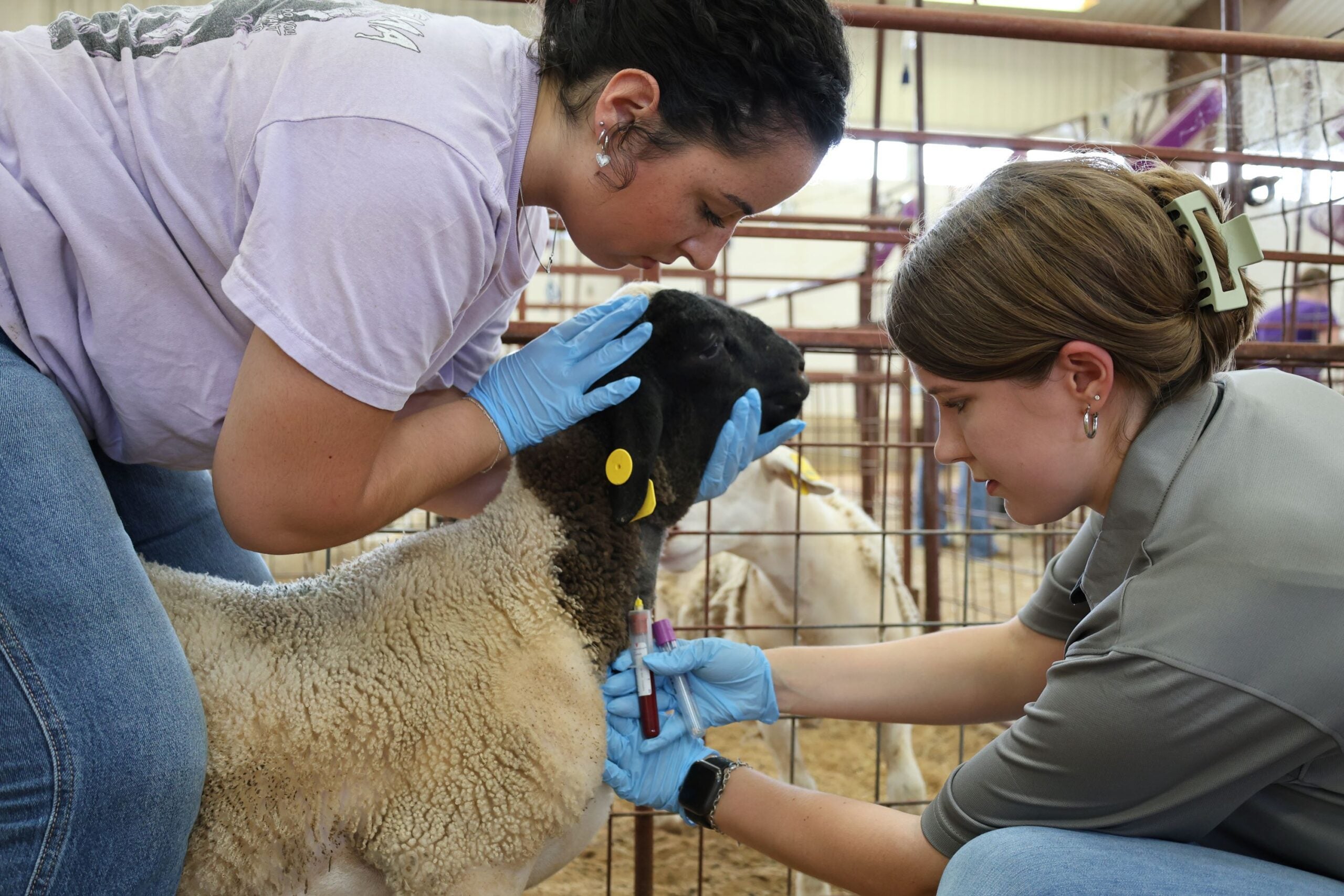B.S. in Animal Science
At the affordable cost of a public university, you get access to world-class facilities and opportunities. Our bachelor’s degree in animal science exposes you to real-life experiences that are practical and relevant to the current job market, with a focus on applied learning that allows you to put classroom material into practice in animal production and research settings.
As a well-known leader in agriculture education and research, we have one of the largest animal science programs in the nation. You can earn your bachelor’s degree in any of these animal science concentrations: Business, Meat and Food Science, Pre-Veterinary Medicine, Range and Ranch Management, Animal Production or Science.
In Stephenville, Texas, and the surrounding area, numerous opportunities are available for majors in animal science to find part-time jobs and internships related to their field while pursuing a bachelor’s degree. Multiple animal science-related job opportunities are available at our college farm, the Tarleton Agriculture Center. You can also study abroad with the animal science program in Australia or other international locations through other disciplines.
What is Animal Science?
Animal science focuses on studying the biology and business of producing domestic livestock species and foods of animal origins.
At Tarleton, our animal science majors study production animals for food and fiber, as well as horses for work and recreation, to help meet the needs of current and future animal scientists, producers and consumers. Our bachelor’s degree program coursework also helps prepare undergraduate students in animal-science related career fields such as range management, meat science and marketing.
The United States is the largest producer of animal food products in the world. This includes meat, milk, eggs and farmed fish. The livestock industry is strong in Texas, with dairy, beef, sheep, goat and horse production particularly vibrant in the Stephenville area.
What Can You Do With Your Bachelor’s Degree in Animal Science?
Prepare for the workforce or graduate school, either with us in the MS in Animal Science program, veterinary school or other graduate degree programs.
Animal science majors in the pre-veterinary medicine concentration boast an acceptance rate between 30 and 40%, which is much higher than most other undergraduate programs in the nation. Through an agreement with the TAMU College of Veterinary Medicine, up to five qualified students from Tarleton will be admitted each year to the TAMU CMV, in addition to students who apply and are admitted through the standard admissions process.
With a bachelor’s degree in animal science, a wide variety of job opportunities are available to you with private industry, state or federal agencies and self-employment in areas such as:
- Meat inspection
- Genetic seedstock management
- Research
- Breed registries
- Animal pharmaceuticals
- Animal feed and nutrition
- Meat and food production

Estimated Completion
120 Credit Hours (4 years)
Application Process
Cost
Locations Available
* – Online courses only available to Stephenville campus students.
College
Careers in Animal Science
The majority of animal science majors are currently employed, enrolled in graduate or professional school, or planning to continue their education.
How Much Do Animal Science Graduates Make?
The median annual salary of animal scientists was nearly $60,000 in May 2018, according to the U.S. Bureau of Labor Statistics.
Why Major in Animal Science?
The animal science bachelor’s degree program at Tarleton features quality classroom instruction, hands-on experience and industry interaction.
What Classes Will You Take as an Animal Science Major?
With the exception of pre-veterinary medicine majors in animal science, you’ll have the opportunity to complete an internship for hands-on work experience and practical training.
In the animal science bachelor’s degree program at Tarleton, you’ll gain knowledge and experience in equipment, technology and livestock, from horses and beef and dairy cattle to sheep, goats and swine. Study a range of topics, including horse management, physiology of reproduction, meat science, dairy farm evaluation, applied animal nutrition and feeding, rodeo production and skills, barbeque science, horse-handling techniques, biotechnology in agriculture and more.
View all required classes for the animal science bachelor’s degree.
Accreditations
How Do You Get Started on Your Bachelor’s Degree in Animal Sciences?
Take the next step toward earning your bachelor’s degree in animal science. We have the resources to help you get started.
Animal and Plant Sciences Center
Teaching and research capabilities in the state-of-the-art Animal and Plant Science Center include genetics, biotechnology, nutrition, anatomy, entomology, soil science and horticulture. The Center features indoor labs, greenhouses, covered arenas, working pens and animal facilities, as well as a merchandising lab that sells meats, vegetables and nursery plants produced by Tarleton students.
What Bachelor’s Degrees are Related to Animal Science?
- BS in Biology
- BS in Agribusiness
- BS in Agricultural Services and Development
- BS in Wildlife, Sustainability, and Ecosystem Science





